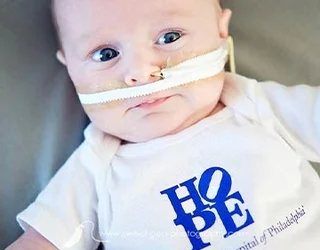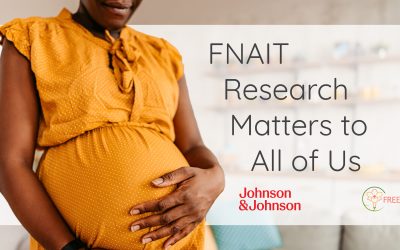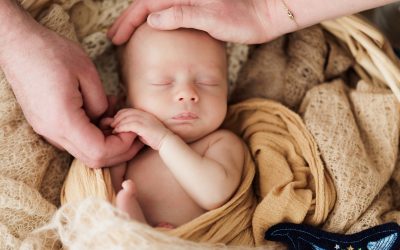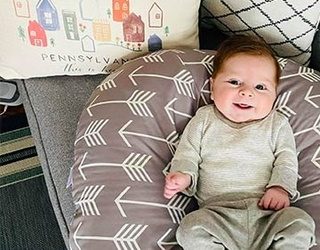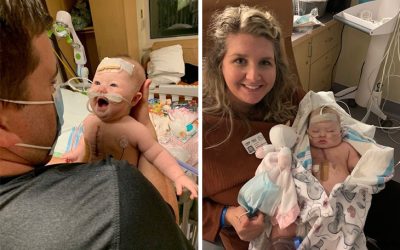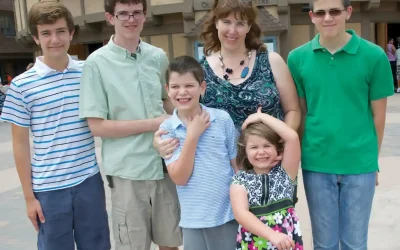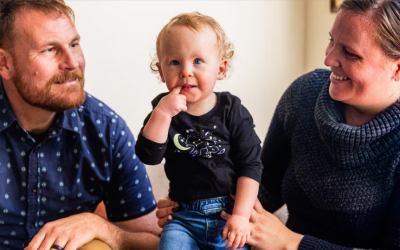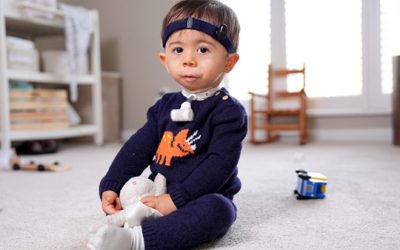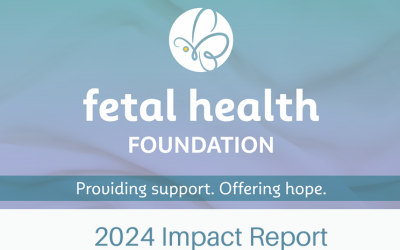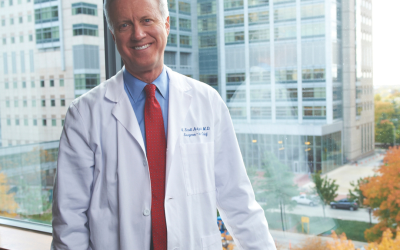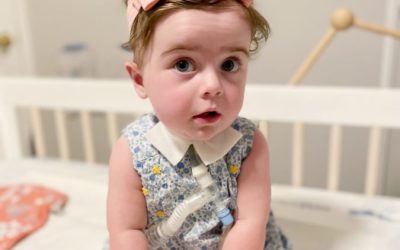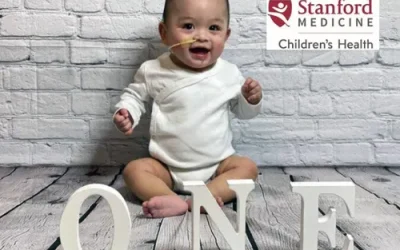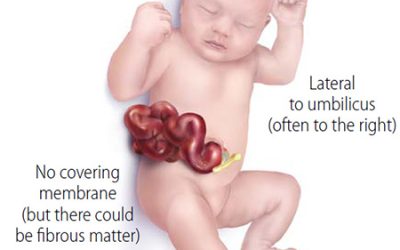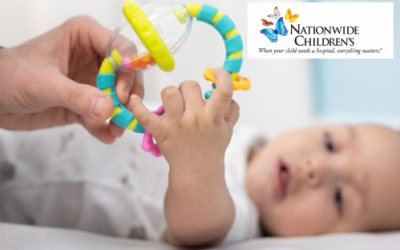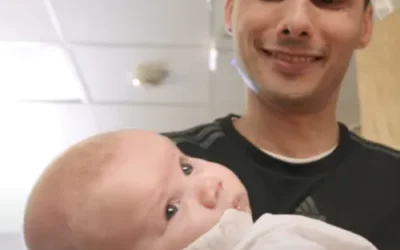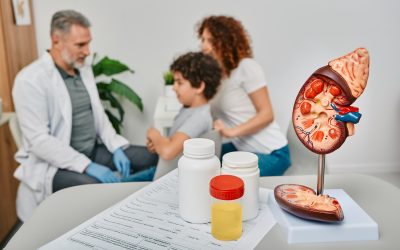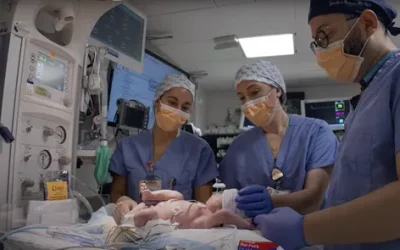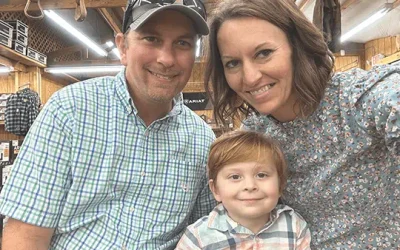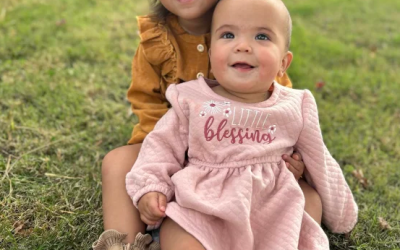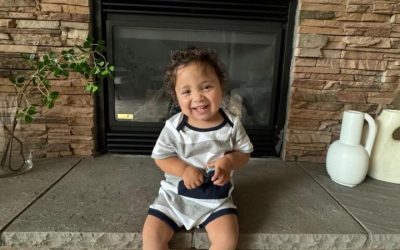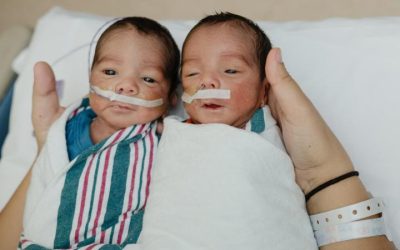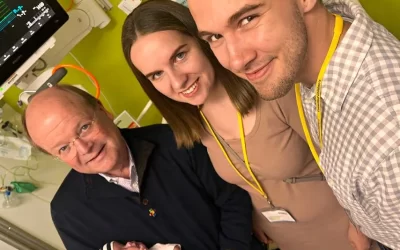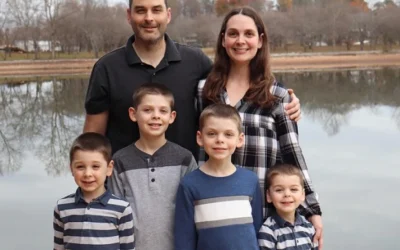Holding Space for the Whole Story: Maternal Mental Health in the Fetal Health Community
This May, we’re honoring Maternal Mental Health Month by recognizing the emotional challenges of fetal health journeys. You’re not alone—let’s rewrite the narrative together and prioritize mental wellness—because your mental health matters.
A Journey of Hope: Overcoming Congenital Diaphragmatic Hernia (CDH)
A family’s journey through the challenges of CDH led them to life-saving care at Children’s Hospital of Philadelphia, where their son received expert treatment and a second chance at life.
Do you or your loved one qualify for a study evaluating an investigational medication for FNAIT?
The FREESIA-3 research study is investigating a new treatment for FNAIT, a rare condition that affects a baby’s platelet count during pregnancy. Pregnant women at risk may qualify for free study medication, care, and health evaluations for mother and baby. Learn more about this opportunity today!
Briana Gray’s FNAIT Story of Triumph and Advocacy
Briana Gray’s journey to motherhood is marked with love, loss, and healing. After losing her son Elijah to FNAIT, she found strength through supportive care and determination. Now raising her sons Callum and Noah, Briana honors Elijah’s memory while embracing the joys of motherhood.
Thomas’s Heartfelt Journey: Overcoming HLHS with Lifesaving Care
Sarah and Yaniv’s son, Thomas, was born with HLHS – hypoplastic left heart syndrome. Thanks to early intervention and expert care from CHOP, Thomas underwent life-saving surgeries and is now thriving as a toddler.
Ruthie’s Story: Baby with Down Syndrome Receives Life-Saving Care and Overcomes Challenges
Ruthie, a baby with Down syndrome, received critical care at UC Davis Children’s Hospital after being diagnosed with a heart condition. With expert support and successful heart surgery, she overcame early challenges and is thriving. Her parents share their journey and encourage others to trust specialized care.
Embracing Imperfection: A Parent’s Journey Raising Children with Disabilities
In this heartfelt reflection, Moira Allbritton shares her journey raising five children, four of whom have autism, and the lessons learned about embracing imperfection, finding acceptance, and discovering joy in parenting children with disabilities.
The Life-Changing Impact of Mental Health Care in the NICU
The mental health support provided in the NICU was essential for Collette & Alex as they navigated the emotional challenges of their daughter Austen’s critical care. The family-focused care at Stanford Children’s enabled them to manage stress, connect with other parents, and focus on both Austen’s healing.
Meet Rami: Checking off milestones after highly rare CCMS diagnosis
Rami’s parents knew when he was still in utero that there was an issue with his jaw. Genetic testing after birth revealed an extremely rare diagnosis of CCMS, which affects the jaw, mouth, and ribs. Thanks to the compassionate, expert care at Cincinnati Children’s, Rami is almost 2 and keeping his parents on their toes!
What does the Fetal Health Foundation do?
At the Fetal Health Foundation, our mission is to connect patients with trusted treatment options and essential support resources. We collaborate with hospitals, fetal centers, and medical companies to amplify our impact. We strive to create a brighter, healthier future for mothers and babies!
Q & A with a Trailblazer: Dr. Scott Adzick at CHOP
The field of fetal diagnosis and treatment is continually evolving. Hear from Dr. Scott Adzick, one of the foremost trailblazers in the specialty, about groundbreaking advancements he helped pioneer. Learn why he believes it’s an obligation of the field to conduct research to offer hope and health.
Baby MJ Battles an Extremely Rare, Strange Heart Defect and Wins
The Egan family is grateful for the “enormous team” at Stanford Medicine Children’s Health who repaired baby MJ’s rare congenital heart defect and provided months of individualized care in the Cardiovascular Intensive Care Unit. Today, their baby is a thriving toddler with normal heart ventricle function.
Alexander’s Story: Expert High-risk Pregnancy Care at Stanford Children’s Health Gets Mom to the Vital 23-week Mark
Emily’s third pregnancy wasn’t expected to be high risk. But once it became clear, she went to the experts at Stanford Medicine Children’s Health. Thanks to the multi-disciplinary approach coupled with personalized fetal counseling, baby Alexander is a thriving toddler with a big smile who is living up to his warrior name.
Gastroschisis and the search for better, earlier interventions at UC Davis Health
The rate of gastroschisis, an abdominal wall defect that is often discovered in utero, has been on the rise in the US. Thanks to Dr. Geoanna Baustista and the Baby Intestines Group at UC Davis Health, research is being done to find potential fetal interventions and improve babies’ outcomes.
A Family’s Journey with Rare Disease: Molybdenum Cofactor Deficiency Type A
The Dahab family moved to Ohio to be close to their “second family” at Nationwide Children’s Hospital. Thanks to Nationwide’s excellence in maternal fetal medicine and fetal imaging, a world-class NICU, access to genome sequencing, and rare disease experts, their boys are living longer and better lives.
Saving Luka: From Albania to Ohio to Treat Posterior Urethral Valves
When doctors told the Lame family their son wouldn’t survive his serious diagnosis, they didn’t give up hope. They started to search for answers. Luckily, they found them at Cincinnati Children’s Hospital. With expert, all-encompassing care, baby Luka is thriving.
Deciding to Treat Fetal Renal Failure: Information & Support for Families from Connecticut Children’s
Treating Fetal Renal Failure is a highly personal process with many decisions to be made over the lifetime of the child. Dr. Timothy Crombleholme at Connecticut Children’s details why it’s important to have support, second opinions, and a highly specialized team.
Three Things to Know About Treating Fetal Renal Failure
Fetal care pioneer Dr. Timothy Crombleholme at Connecticut Children’s Fetal Care Center explains what families need to understand about their deeply personal options for treating Fetal Renal Failure.
Golden Hour: Expert Delivery of Babies with Birth Defects at Children’s Hospital of Philadephia
Children’s Hospital of Philadelphia is specially equipped with technology and expertise to deliver babies with birth defects. In fact they lead the nation in these deliveries. See what a “delivery room of the future” looks like.
Campbell’s Story: Cincinnati Children’s Offers Expert Treatment for Cloacal Exstrophy
Campbell Lester recently celebrated his third birthday. But during his mom's 20-week ultrasound appointment, doctors believed nothing good would come from the pregnancy. The ultrasound showed a grim picture: part of the baby's abdomen was open and organs would be...
Arley’s Fetal Heart Tumor Journey: How In-Utero Surgery for Pericardial Teratoma Saved Her Life
Time was on baby Arley’s side when she was diagnosed with a rare fetal heart tumor. A narrow window of opportunity exists to remove a mass from a baby’s heart before it gets too large. But lucky for Arley, she was in a good place for the experts at CHOP to perform the in-utero procedure and allow her heart to function normally.
Josiah’s Story: Innovative Technology Treats Fetal Renal Failure
Narina and Chris were referred to expert care at Connecticut Children’s Fetal Care Center that saved baby Josiah’s life. Other doctors were ready to give up hope. But thanks to an innovative technique to receive amnioinfusions, baby Josiah is doing well and is ready for the ultimate phase of treatment.
Renny & Benny’s Story: Fetoscopic laser surgery to correct twin-twin transfusion syndrome
Kaelyn thought she might lose both her babies when Twin-to-Twin Transfusion Syndrome entered the picture. But thanks to the “amazing, amazing people” at Connecticut Children’s Fetal Care Center, she is enjoying life with her two healthy identical twin boys and wants parents to know that there is help and hope.
Thaddeus’s Story: Beyond Open Fetal Surgery, A Spina Bifida Success
5-minute read
Ester and Samuel traveled across country and stayed away from home for months to ensure the health of their baby boy. His serious spina bifida diagnosis and mom’s cervical complications were challenges that Dr. Timothy Crombleholme accepted and triumphed over.
The McGrew Family Story: When Your Baby Has FNAIT
3-minute read
Parents aren’t the only ones who may not be aware of the dire consequences of FNAIT. Many doctors and other medical professionals aren’t familiar with the blood disorder until there’s a serious problem. Raising awareness allows for better disease management and prevention. See how the McGrew family dealt with four FNAIT pregnancies.


